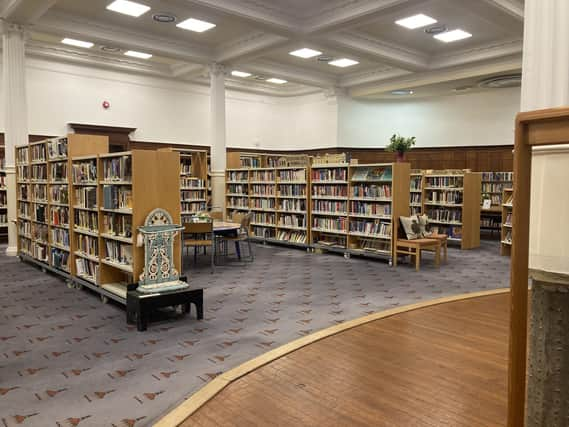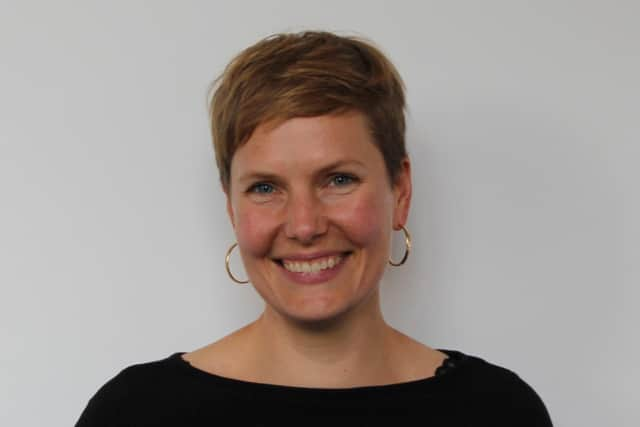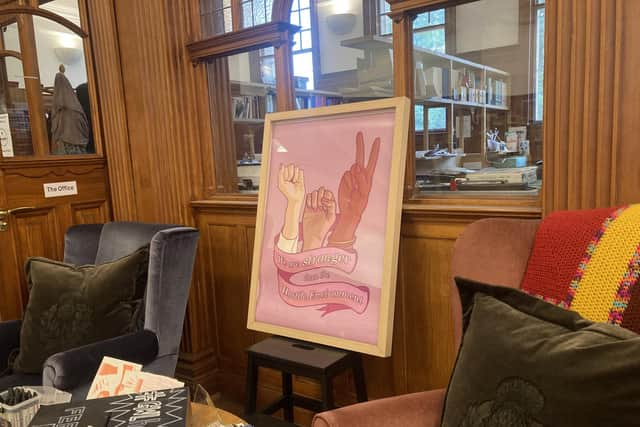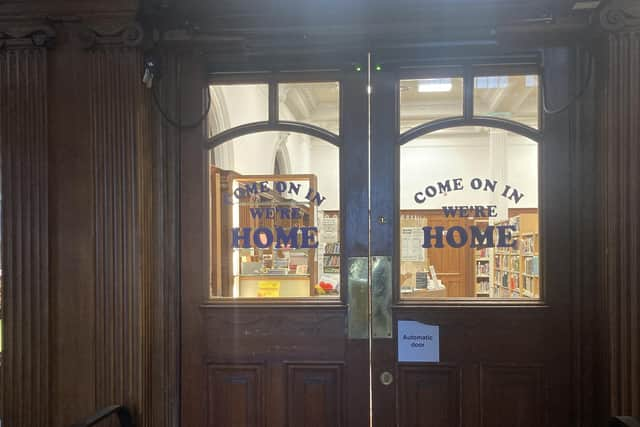The importance of libraries to women in town planning


For years, urban spaces have, generally, been “designed by men, for men”, with a lack of consideration for the needs of women.
This is a view underlined by the concept of feminist town planning; an approach that re-considers male-dominated spaces by including and considering women in town infrastructure.
Advertisement
Hide AdAdvertisement
Hide AdNow, there is evidence to suggest libraries may play a fundamental role in this “feminist” approach to looking at town planning.


After publishing its report, I feel trapped, in March, Wise Women Glasgow told Scotland on Sunday libraries were “crucial” for including women in communities as its research showed they tend to use community hubs and libraries the most out of any other recreational service.
A Wise Woman spokesperson said they found in several Glaswegian communities there "were spaces for men but no spaces for women”.
Gabrielle Macbeth, volunteer co-ordinator at Glasgow Women's Library (GWL), said libraries can offer “so much” to improve women’s experiences in their communities.
In April 2022, the report The Transformative Space of the Library was published by CILIPS – Scotland’s library and information association.


The report looked at a two-year project based at the University of Strathclyde named Transformative Servicescapes and Consumer Vulnerability which used GWL as a case study for examining the role of physical spaces and their contribution towards increased well-being and transformative experiences.
Since 1991, GWL has been supporting women from all walks of life, from outreach projects for “new Scots” learning the English language, to offering a hub of women-focused books.
Gabrielle said the library gives women “a place of solidarity" where it allows them to realise it is not their fault life is sometimes unfair but the product of a “hostile environment”.


Advertisement
Hide AdAdvertisement
Hide Ad"We are a building that is much more about the inside rather than streets or parks, but there may be lessons that can be broadened out in a philosophy of inclusivity for town planning,” said Gabrielle.
Looking at the findings of the report, the researchers emphasised the importance of making a space “welcoming and comfortable” as soon as someone steps through its doors – a quality highlighted by GWL.
Gabrielle said: "Small things like having comfy chairs and making things homely by serving cups of tea are really important. Wee touches you might do in your flat and make people feel welcome and comfy.”
Not only are visitors encouraged to feel they can treat the library as their living room, the culture is also fundamental as Gabrielle said GWL would be “open” to helping Glasgow City Council make public spaces more welcoming and inclusive.
Glasgow City Council was contacted for comment.
Gabrielle said: “People could be going through all sorts of things in their lives and here it is really not judgemental.
"I think the library can sometimes be a bit of a sanctuary for women. Maybe women who are at a crossroads and something has happened, like a bereavement, and this is somewhere where they can be themselves.”
An important element is the nature of the books, according to the volunteer co-ordinator who has worked at the library for 11 years.
Gabrielle added: "A lot of people in the research talked about the books and coming in and seeing books that reflect them and their lives.
“Coming into a space where everything is about women, is such a revelation and that never happens. In most public spaces, men’s voices are the default and women’s areas are ‘specialised’ subjects.
"It’s also about offering a space for people to realise their potential. Women’s lives are really celebrated here.”
The re is "no typical user” and all (including men) are welcome with women-only activities and events (for women and non-binary people) available.
Location also plays a part in inclusivity. The first home of the library was Garnethill in Glasgow’s city centre from 1991-1995 and it was only in 2013 that the library moved to the east end of the city in Bridgeton.
“Our history of moving has often been where we can afford but we have always really carefully considered where we’ve gone,” Gabrielle said, "This is an area rich in history but also an area that has been neglected. For an organisation addressing inequalities, this is a good place to be doing it in.
"People want their communities to be striving and vibrant and we were hopefully able to bring that alongside other organisations.
"It’s so important that there are cultural spaces in all communities, not just in the west end or city centre.”
Suzanne Ewing, involved in Voices of Experience, a collaborative project focusing on the lack of recognised female presence and role models within architecture and the build environment, said libraries were “fundamental” in improving communities for women .
The academic who is the personal chair of architectural criticism at Edinburgh College of Art said: “I think libraries are really important spaces as anyone can come in.
Advertisement
Hide AdAdvertisement
Hide Ad"GWL has all the specific qualities of making a space welcoming to a community. As a model [for other built environments to copy], I think it would work very well for neighbourhood infrastructure.”
"My observations are that it’s an in-between space which makes it so accessible. It also has source materials of the area and beyond and the knowledge of the local is so important.”
Overall, Professor Ewing said more perspectives from women from different backgrounds is necessary in changing landscapes to be more inclusive and accessible for all.
Comments
Want to join the conversation? Please or to comment on this article.
